-
-
Tools & resources
It looks like you are using an older version of Internet Explorer which is not supported. We advise that you update your browser to the latest version of Microsoft Edge, or consider using other browsers such as Chrome, Firefox or Safari.
7 top tips for tackling heart failure symptoms
A heart failure diagnosis can be a worrying time, but it just means you’ll need to adjust some of the things you do to manage a range of potential symptoms such as breathlessness and extreme tiredness.
These seven heart failure tips are small, easy changes that you can make to your everyday life that will help you to do just that

1.Following your treatment regimen1
It may seem obvious but taking your medications every day at the right time is one of the most important things you can do for your heart failure. Here’s some suggestions that may help:
- Try setting a daily alarm on your phone to remind you when to take your medication
- Use a pill dispenser, a device which can assist in taking medication at the right time
- If you are going away, make sure to pack plenty of medication including enough for a few extra days!
Remember to speak to your doctor if you have any concerns about your medication at all.
2.Get vaccinated2
Heart failure puts a greater strain on the body and puts you at greater risk of becoming seriously ill from the flu, so it is important for everyone with heart failure to get a yearly flu jab2.
A one-off pneumococcal (flu) vaccination, protects against a serious chest infection called pneumococcal pneumonia and is also available to those with heart failure2. Your doctor will be able to give you more information about both of these vaccinations


3.Stick to a healthy diet1
A healthy diet can help to improve your heart failure symptoms as well as your overall health1. It’s easy for us to say what you should be eating but much harder for you to actually stick to! That’s why we’ve put together a few simple tips we hope will help:
- Try steaming, broiling or baking your favourite foods instead of frying them
- Make sure you, or whoever is cooking, reads the packaging labels on foods to avoid things high in salt and fat. Wherever possible, look for no added salt and sugar versions of your favourite foods.
- Get rid of the saltshaker and use herbs and spices for flavour instead (which are much tastier anyway!)
- Plan your food shop before heading out, as this will not only make your life easier, but will also help map out what you’re eating to help make sure that meals are balanced across all the key food groups
- Avoid processed foods by preparing your food from fresh – you may also find a new hobby along the way
- Plan ahead for special events or celebrations –If you are worried about food options, call ahead and see what items they can offer that you will enjoy and will meet your dietary requirements
4.Rest after exercise
In case we haven’t said it enough, exercise is very beneficial for those with heart failure. But almost as important is ensuring that you rest afterwards to allow your body to catch up with the demands placed on it3. Resting doesn’t only mean sleeping, it can be finding a quite space to listen to music, reading or meditating. Here’s some tips for conserving energy:
- Take a day off exercising and relax in the day before a big event to help conserve your energy
- Break up your activities during the day with rest, there is no need to do everything in a rush!
- Don’t feel like you can no longer engage in sex. Make sure you feel rested and relaxed beforehand and choose less energetic positions - ask your partner for help


5.Listen to the weather forecast3
Heart failure makes your body less likely to be able to adjust to extremes of weather, whether that is hot and humid or very cold3. Listen into the weather forecast every day and modify your plans accordingly.
During the hot months3:
- Avoid arduous exercise during hot weather, especially outdoor activities
- Keep hydrated, but also be cautious about drinking too much water, speak to your doctor about how much you should be having
- Wear loose-fitting cotton clothes
During the cold months3:
- Wear lots of thin layers instead of a few heavy ones and don’t forget your hat and gloves!
- Dig out that hot water bottle or extra blanket for extra warmth
- Keep your house warm and minimize draughts with a draught excluder
6.Managing mental wellbeing3
Besides the physical symptoms of heart failure, the condition can often leave people feeling a bit down. Please remember that you are not alone in this, in fact over a third of people with heart failure report feeling symptoms of depression3. It’s important to try to find ways to control any stress, anxiety or depression caused by heart failure. Give these tips a go:
- Talk to your doctor or a caregiver about your emotions as well as your physical symptoms - they may be able to suggest things to help such as exercise regimes or support groups
- Be kind to yourself - it is completely normal to feel down or anxious about your heart failure from time to time. If you are feeling low or struggling with a task, don’t blame yourself, instead reach out for help
- Give meditation, yoga or deep breathing a go – you might be surprised at how it can help to deal with any stress or anxiety you may be feeling. In fact, studies across a whole array of chronic conditions have shown improvements in well-being and quality of life for people who meditated, with no negative outcomes reported. There are handy apps for your phone and tablet or you can find videos online as well as books.
- Keeping a diary can help you record your emotions and gives you an avenue to discuss how you feel with yourself. It’s also a really useful tool for reflection and you can use it to go back and see how you dealt with similar situations in the past. You can also use a diary to help express how your feeling to loved ones if it’s easier than talking face to face
- Joining a local social club, sport team or community group is a great way to meet new people and improve your social connections. They often have groups of similar ages and you can learn lots of new skills too
- Join a creative arts groups. This may be any form of arts and crafts from painting to sewing to starting a new musical instrument. Joining a new group is a great way to keep your brain active, extend your social connections and improve your mental wellbeing. You don’t have to be a naturally creative person to join and a lot of classes tailor for being with absolutely no experience before


7.Celebrate success3
You know better than anyone the challenges of living with heart failure. There may be lows along the way so it is especially important to celebrate the successes. Maybe you met your exercise goal, made the tastiest heart healthy meal yet or took control and raised a concern you had with a doctor – whatever your achievement it deserves celebrating. But of course, we can’t forget about heart failure so make your reward heart friendly. Making a list of incentives is a great way to motivate yourself and could include things like:
- A special outing such as a sport event, a museum or a local park
- Buying a new book
- Visit some friends
- Attending a special event such as music event, the cinema, the theatre or a talk
Both you and your heart will benefit.

Top tips for looking after your heart
Find out why it is important to look after your heart this winter and top tips for staying healthy during the cold weather.

5 common heart failure myths
Have you come across these common heart failure myths?

1) British Heart Foundation (BHF). 5 ways to manage your heart failure. Heart Matters Magazine. Available at: https://www.bhf.org.uk/informationsupport/heart-matters-magazine/medical/living-with-heart-failure/5-tips-for-managing-heart-failure..Last accessed January 2020.
2) NHS Choices. Living with heart failure. Available here: http://www.nhs.uk/Conditions/Heart-failure/Pages/living-with.aspx.Last accessed January 2020.
3) Coeuretavc. Managing Heart Failure. Available here: http://www.coeuretavc.ca/-/media/pdf-files/canada/health-information-catalogue/en-managing-heart-failure-v3.aspx. Last accessed January 2020.
4) Goldstein C, Gathright E, Garcia S. Relationship between depression and medication adherence in cardiovascular disease: the perfect challenge for the integrated care team. Dove Press Journal 2017; 11: 547-559. Available at: https://www.ncbi.nlm.nih.gov/pmc/articles/PMC5359120/. Last accessed January 2020.
